
Belgian Coordinated Collections of Micro-organisms (BCCM)
bccm.belspo.be/index.php
In 1997, the Belgian Coordinated Collections of Micro-organisms (BCCM), with the support of the European Commission, developed a voluntary code of conduct, the so called Micro-organisms Sustainable Use and Access Regulation International Code of Conduct (MOSAICC), which covers the terms of access to microbial genetic resources, including the terms of agreement on benefit-sharing, access to and transfer of technology, scientific and technical cooperation as well as technology transfer. Moreover, in 2004, BCCM has launched a project to develop a “Microorganisms Sustainable use and Access management Integrated Conveyance System” (MOSAICS).
Subject(s): Access to Genetic Resources and Benefit-sharing

Biotechnology Industry Organization (BIO)
www.bio.org
BIO is the world's largest biotechnology organization, providing advocacy, business development and communications services for more than 1,150 members worldwide. BIO engages in the discussions on a possible patent law harmonization treaty within WIPO, the WTO TRIPS process, as well is actively engaged in the deliberations of the Intergovernmental Committee on Folklore, Traditional Knowledge and Genetic Resources of the World Intellectual Property Organization and in various forums within the Convention on Biological Diversity (CBD).
Subject(s): Access to Genetic Resources and Benefit-sharing; Business and Biodiversity
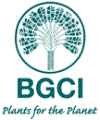
Botanic Gardens Conservation International
www.bgci.org
Botanic Gardens Conservation International (BGCI) is a plant conservation charity based in London, England. It is a membership organisation, working with 800 botanic gardens in 118 countries, whose combined work forms the world's largest plant conservation network. This site has been developed in conjunction with Royal Botanic Gardens Kew, the International Plant Exchange Network (IPEN) and Botanic Gardens Conservation International (BGCI). It contains, among others, information on how to develop an ABS policy, reference to the Principles on Access to Genetic Resources and Benefit-sharing for Participating Institutions developed by a number of botanic gardens and herbaria, as well as some case studies.
Subject(s): Global Strategy for Plant Conservation; Access to Genetic Resources and Benefit-sharing; Global Taxonomy Initiative

Centre for International Sustainable Development Law (CISDL)
www.cisdl.org/programs.html
The CISDL, an independent international legal academic research centre based in Montreal, Canada, with subsidiaries in Cambridge, Nairobi, Costa Rica and Hong
Kong, carried out, inter alia, Sustainable Development Law Research on ABS. Output and information on recent events can be found on their web site.
Subject(s): Access to Genetic Resources and Benefit-sharing; Governance, Law and Policy
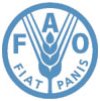
Commission on Genetic Resources for Food and Agriculture
www.fao.org/WAICENT/FAOINFO/AGRICULT/cgrfa
The Commission on Genetic Resources for Food and Agriculture is a permanent forum where governments discuss and negotiate matters relevant to genetic resources for food and agriculture. The main objectives of the CGRFA are to ensure the conservation and sustainable utilization of genetic resources for food and agriculture, as well the fair and equitable sharing of benefits derived from their use, for present and future generations.
Subject(s): Agricultural Biodiversity; Genetic Use Restriction Technologies; Access to Genetic Resources and Benefit-sharing

Global Plan of Action for Plant Genetic Resources for Food and Agriculture
www.fao.org/agriculture/crops/core-themes
/theme/seeds-pgr/gpa/en
The Second Global Plan of Action for Plant Genetic Resources for Food and Agriculture (Second GPA) is a strategic framework for the conservation and sustainable use of the plant genetic diversity on which food and agriculture depends. It was prepared under the aegis of the Commission on Genetic Resources for Food and Agriculture and adopted by FAO Council at its 143rd Session in November 2011.
The Second GPA reaffirms the commitment of governments to the promotion of plant genetic resources as an essential component for food security through sustainable agriculture in the face of climate change.
Subject(s): Access to Genetic Resources and Benefit-sharing; Business and Biodiversity
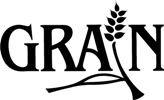
GRAIN
www.grain.org
GRAIN is a small international non-profit organisation that works to support small farmers and social movements in their struggles for community-controlled and biodiversity-based food systems. Our support takes the form of independent research and analysis, networking at local, regional and international levels, and fostering new forms of cooperation and alliance-building. Most of our work is oriented towards, and carried out in, Africa, Asia and Latin America.
Subject(s): Access to Genetic Resources and Benefit-sharing

International Centre for Integrated Mountain Development (ICIMOD)
www.icimod.org/abs
This web portal on “Access and Benefit-Sharing from Genetic Resources and Associated Traditional Knowledge” of the ICIMOD is part of its programme to facilitate the development and implementation of the ABS related provisions of the CBD in the Eastern Himalayas.
Subject(s): Access to Genetic Resources and Benefit-sharing; Mountain Biodiversity

International Chamber of Commerce (ICC)
www.iccwbo.org/policy/ip/id2480/index.html
The ICC’s Commission on Intellectual Property contributes world business views to governmental and intergovernmental debates on key intellectual property issues facing the international business community, including access and benefit-sharing, as well as protection of traditional knowledge.
Subject(s): Access to Genetic Resources and Benefit-sharing

International Environment Law Research Centre (IELRC)
www.ielrc.org/home.php
The International Environmental Law Research Centre is an independent research organisation focusing on international and comparative environmental law issues, with a particular emphasis on India and East Africa. The IELRC addresses ABS related issues in its research programmes on biodiversity and intellectual property rights. The biodiversity programme of the International Environmental Law Research Centre (IELRC) attaches significant importance to the development of property rights regimes over biological resources at the local, national and international levels.
Subject(s): Access to Genetic Resources and Benefit-sharing; Economics, Trade and Incentive Measures; Governance, Law and Policy; Cartagena Protocol on Biosafety
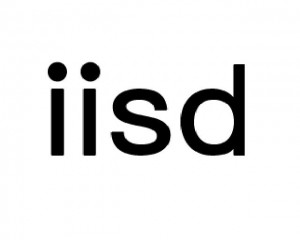
International Institute for Sustainable Development (IISD)
www.iisd.org/abs
The IISD prepared in cooperation with Mr Jorge Cabrera an ABS-Management Tool that represents a best practice standard and a handbook which provides voluntary guidance and tools on ABS practice to help companies, researchers, indigenous and local communities and governments to ensure compliance with the Bonn guidelines and ABS requirements under the CBD. It can be downloaded from the above website which features additional valuable information on ABS.
Subject(s): Access to Genetic Resources and Benefit-sharing

International Treaty on Plant Genetic Resources for Food and Agriculture
www.planttreaty.org
The International Treaty on Plant Genetic Resources for Food and Agriculture is crucial in the fight against hunger and poverty and essential for the achievement of Millennium Development Goals 1 and 7. This website disseminates information on the ITPGRFA and its Multilateral System for Access and Benefit Sharing. It is meant to be a platform to distribute documents for the meetings of the Governing Body and its related committees and subcommittees and other information.
Subject(s): Agricultural Biodiversity; Access to Genetic Resources and Benefit-sharing; Sustainable Development / Millenium Development Goals; Biodiversity for Development; Cooperation and Partnerships; Financial Resources and Mechanism; Business and Biodiversity
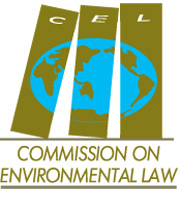
IUCN Environmental Law Centre (ELC)
www.iucn.org/about/union/commissions/cel
Since 2003, with the financial support of the German Federal Ministry for Development Cooperation (BMZ), the ELC carries out a project on ABS whose centerpiece is a series of publications, the “ABS series”, providing intensively researched expert analysis by internationally respected authors and contributors on key issues of ABS under the CBD.
Subject(s): Access to Genetic Resources and Benefit-sharing; Governance, Law and Policy

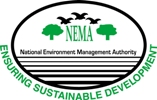
National Environmental Management Authority (NEMA) - Uganda
www.nemaug.org
The National Environment Management Authority (NEMA) is a semi-autonomous institution that was established by an Act of parliament in May 1995 and became operational in December 1995. NEMA is therefore specifically mandated by the National Environment Act (NEA), Cap. 153 as the principal agency in Uganda charged with the responsibility of coordinating, monitoring, supervising and regulating all environmental management matters in the country.
Subject(s): Inland Waters Biodiversity; Forest Biodiversity; Genetic Use Restriction Technologies; Access to Genetic Resources and Benefit-sharing; Communication, Education and Public Awareness; Governance, Law and Policy
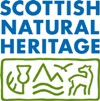
Scottish Natural Heritage
www.snh.org.uk
Scotland's natural heritage underpins these subjects: economy, health, education, and well-being. A healthy environment leads to healthy people and a healthy economy. The mission described on the website, is based on a simple principle: we must care for and sustain our natural heritage if we want it to sustain us. It role is to look after the natural heritage, help people to enjoy and value it, and encourage people to use it sustainably.
This website describes what the organization realizes on key issues such as sustainable development, biodiversity, climate change, transport and community regeneration.
Subject(s): Protected Areas / In-Situ Conservation; Scientific Assessment; Research and Science; Access to Genetic Resources and Benefit-sharing; Agricultural Biodiversity; Marine and Coastal Biodiversity; Communication, Education and Public Awareness; Biosafety and Biotechnology; Endangered Species; National Reports; National Biodiversity Strategies and Action Plans (NBSAP)

Swiss Academy of Science - ABS Good Practice Tool
abs.scnat.ch
The Swiss Academy of Sciences developed an ABS good practice tool to create awareness among the academic research community to the access and benefit-sharing provisions of the CBD, as well as launched a website, containing some additional features such as a marketplace where scientists can share research experiences and case studies regarding genetic resources. The site also offers updates on current international policy developments, checklists and a download area.
Subject(s): Access to Genetic Resources and Benefit-sharing
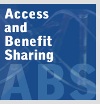
The ABS Capacity Development Initiative for Africa
www.abs-africa.info
The Initiative promotes capacity development measures to empower Governments and stakeholders not only to identify and articulate their own interests but also to find fair and mutually agreed solutions in negotiations at the international (CBD international regime on ABS ) and national levels (legislation/regulations) as well as in contractual agreements. Enabling African states and stakeholders to use benefits generated
by the use of genetic resources for biodiversity conservation and
poverty alleviation
Subject(s): Access to Genetic Resources and Benefit-sharing; Biodiversity for Development; Cooperation and Partnerships
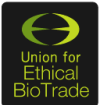
Union for Ethical BioTrade
www.ethicalbiotrade.org/abs/index.html
Union for Ethical BioTrade is a non-profit association that promotes the 'Sourcing with Respect' of ingredients that come from native biodiversity. Members commit to gradually ensuring that their sourcing practices promote the conservation of biodiversity, respect traditional knowledge and assure the equitable sharing of benefits all along the supply chain. An important element of the work of the Union for Ethical BioTrade is to assist its members on policies and practices for ABS.
Subject(s): Access to Genetic Resources and Benefit-sharing; Biodiversity for Development; Economics, Trade and Incentive Measures
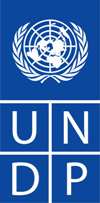
United Nations Development Programme
www.undp.org
Subject(s): Access to Genetic Resources and Benefit-sharing; Traditional Knowledge, Innovations and Practices - Article 8(j); Agricultural Biodiversity; Protected Areas / In-Situ Conservation; Sustainable Development / Millenium Development Goals; Cooperation and Partnerships; Biodiversity for Development